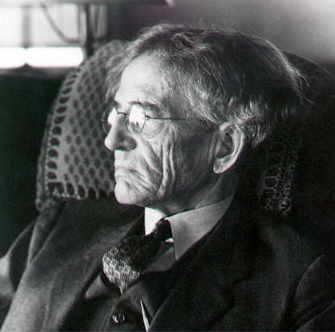“Liberty is absence of restraint. Freedom is participation in government.”
Źródło: Legal foundations of capitalism. 1924, p. 111
John Rogers Commons – ekonomista amerykański i socjolog, czołowy przedstawiciel instytucjonalizmu, progresywizmu oraz wpływowy doradca polityczny. Wikipedia

“Liberty is absence of restraint. Freedom is participation in government.”
Źródło: Legal foundations of capitalism. 1924, p. 111
Źródło: "Institutional Economics," 1931, p. 648
“Legally, the term liberty means absence of duty, or rather the limit of duty.”
Źródło: Legal foundations of capitalism. 1924, p. 53
pg. 41.
Races and Immigrants in America, 1907
Źródło: "Institutional economics," 1936, p. 243
Źródło: Legal foundations of capitalism. 1924, p. 221
Źródło: "Institutional Economics," 1931, p. 648
Źródło: Legal foundations of capitalism. 1924, p. vii
pgs. 115-16.
Races and Immigrants in America, 1907
Źródło: Legal foundations of capitalism. 1924, p. 95
Źródło: Legal foundations of capitalism. 1924, p. 376
Źródło: Legal foundations of capitalism. 1924, p. 320
"Institutional Economics," 1931
Źródło: Legal foundations of capitalism. 1924, p. 1; Lead paragraph first chapter on Mechanism, Scarcity, Working Rules
John R. Commons, "American shoemakers, 1648-1895: A sketch of industrial evolution." The Quarterly Journal of Economics (1909): 39-84.
pg. 131.
Races and Immigrants in America, 1907
“Liberty, as such, is only the negative of duty, the absence of restraint or compulsion.”
Źródło: Legal foundations of capitalism. 1924, p. 118
Źródło: "Institutional Economics," 1931, p. 654
Źródło: Legal foundations of capitalism. 1924, p. 351-352
pg. 136.
Races and Immigrants in America, 1907
Źródło: Legal foundations of capitalism. 1924, p. 25
Źródło: Legal foundations of capitalism. 1924, p. 99
Źródło: "Institutional Economics," 1931, p. 652
Źródło: "Institutional economics," 1936, p. 242